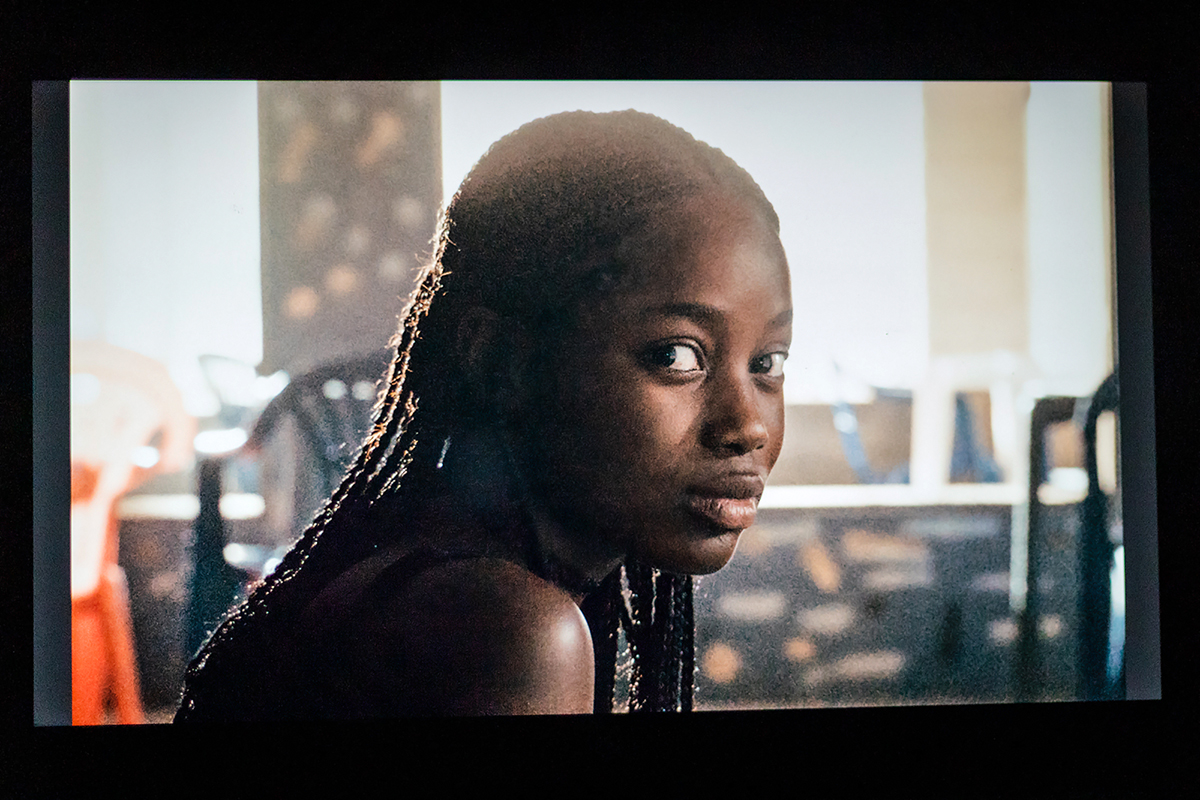In the latest article of the Global Cinema Series, I wrote about Djibril Diop Mambety’s “Hyenas.” And while that was the last feature film he made due to his devastating early death, his filmmaking legacy lives on with an exciting new director.
Mati Diop, the niece of Mambety, had one of the best directorial debuts in recent memory with the captivating “Atlantique.” The film was a nominee for the Palme d’Or in 2019, making Diop the first Black woman to compete in the Cannes Film Festival. Her nomination goes to show just how amazing this film is.
“Atlantique” is the type of movie that truly is genre-less. What at first looks like a typical Romeo and Juliet-esque romantic drama becomes something much stranger, darker and fantastical.
The movie focuses on one of our main characters, Souleiman, who is a construction worker working on building a new futuristic tower in Dakar, Senegal. He and his coworkers are extremely upset because they haven’t been paid by their bosses in months, and they decide to take action by leaving the country for Spain.
The tone of the film is set with a sequence of Souleiman and his coworkers in the back of a truck singing a song, most likely in celebration of their decision to leave Senegal. But in the background of their singing is a masterful piece of cinematic sound, composed by Senegalese musician Fatima Al Qadiri. The haunting synths and melodies alongside Souleiman’s expression foreshadow a darker future than what these men believe to be in front of them.
We then meet our protagonist, Ada, who is in love with Souleiman despite her engagement to a wealthier man. And despite Souleiman’s reciprocated feelings, he leaves by sea soon after without telling Ada his plans.
The first of a string of mysterious events occur when the couple’s wedding bedroom goes up into flames on Ada’s wedding day. There are suspicions that Ada or Souleiman have committed arson in rebellion to prevent Ada from being married off by her conservative Muslim family. Ada is also interrogated by her fiance’s parents and forced to take a virginity test.

What follows is an entrancing and thrilling journey of two humans’ desire to be together again. The power of the journey would be weakened with further spoilers from me.
This film is one of many firsts. It is Diop’s directorial debut, but — maybe even more surprisingly — it’s much of the cast’s first acting experience. I’ve always been a huge fan of “street-casting” — finding regular people with unique characteristics and talents and having them naturally embody the characters they are playing.
From “Bicycle Thieves” to “Uncut Gems,” using non-actors in pivotal acting roles proves to be a grassroots way of making the story much more real and impactful.
Ada is played by first-time actress Mame Bineta Sane, who grew up in a suburb of Senegal that this film takes place in. In fact, Diop and her casting associates first discovered her walking on the streets of a Dakar suburb.
In the film, Sane didn’t have any one-liners or soliloquies that could be easily added to an acting reel. Instead, Sane subtly embodies the character of a woman left behind in an ever-changing city. This realistic portrayal of such a character is contrasted with the supernatural turn the film takes, blending reality and religious mythology to create something extraordinarily fresh.
Similar to her late uncle, Diop uses filmmaking as a tool to show the cultural turmoil Dakar is going through due to the rush of modernization. The unfinished futuristic tower designed to house the wealthy looms over a struggling city. However, it is being built by workers who aren’t being paid by the very same wealthy people the new city is for.
In addition to the tower, the Atlantic Ocean serves as a metaphor for the false hope of these young men. What seems like a path to freedom and modernity turns to be a murderous abyss that eats those willing to risk the idea that life is that much better on the other side of the seemingly endless sea.
In a movie with a first-time director, composer and actors, the finished product is as polished as can be. With the great help of experienced cinematographer Claire Mathon, who worked in the same role for the massively successful “Portrait of a Lady on Fire,” this film’s faded colors and long takes create a world that brings the viewer along to explore this place between dream and reality.
Available to stream on Netflix, “Atlantique” successfully bends genres through visual, audio and narrative storytelling that puts an African woman’s story at its focus — something that is uncommon to find among the streaming mammoths’ vast content libraries.
This is an account occasionally used by the Daily Free Press editors for posts with multiple authors or otherwise for special circumstance publications. See authorship info on the byline at the top of the page.




